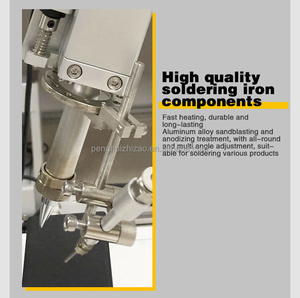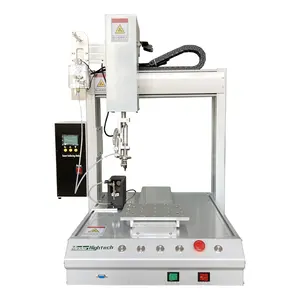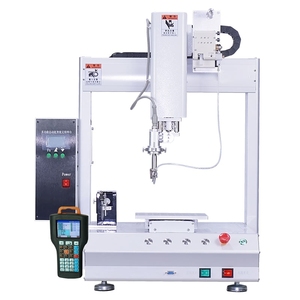(3431 products available)


















































































































































































































The realm of precision manufacturing has been revolutionized by the advent of automatic soldering robots. These sophisticated machines are engineered to deliver consistent and precise soldering applications across a variety of industries. From intricate circuit board production in electronics to the assembly of complex components in automotive manufacturing, the versatility of these robots is unparalleled.
Automated soldering equipment comes in various forms to cater to different industrial needs. Some are designed for specific tasks such as soldering iron tips, while others are versatile enough to handle a range of soldering jobs. The applications are just as diverse, with these robots being integral to operations in manufacturing plants, machinery repair shops, and even in the construction of building materials. Their global presence is marked by their usage in countries like Vietnam, India, and Egypt, showcasing their adaptability to various working environments.
The core components that make up an automated soldering station include programmable logic controllers (PLCs), precision motors, and robust engines. These elements work in harmony to facilitate the intricate movements and functions of the soldering robot. The materials used in their construction are chosen for durability and performance, ensuring that each robot can withstand the rigors of continuous industrial use.
Switching to an automated soldering system brings a multitude of advantages. The precision and repeatability of these robots minimize human error, enhancing the overall quality of the soldering process. Efficiency is another significant benefit, as these machines can operate continuously without fatigue, leading to increased production rates. Furthermore, the automation of soldering tasks can lead to a safer work environment by reducing the exposure of workers to potentially hazardous conditions.
Selecting the appropriate automated soldering machines is crucial for optimizing production. Factors to consider include the specific soldering tasks, the volume of work, and the level of precision required. While the choice of machine will vary based on individual business needs, the common thread is the need for a system that integrates seamlessly into existing production lines, enhancing both output and quality.
In conclusion, the integration of automatic soldering robots into manufacturing processes marks a significant leap towards technological advancement and efficiency. These machines are pivotal in meeting the demands of high-quality soldering tasks across various industries. As the manufacturing sector continues to evolve, the reliance on these automated solutions is set to increase, making them a key component in the future of industrial production.